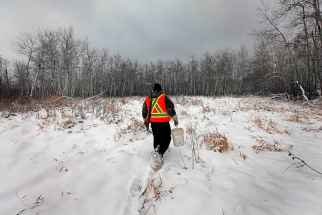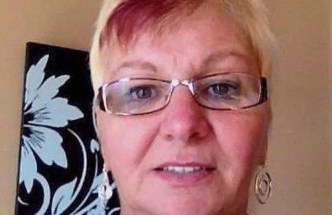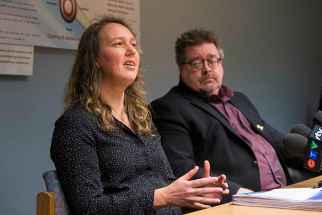Meth crisis could have been avoided, parliamentary hearing told
Read this article for free:
or
Already have an account? Log in here »
To continue reading, please subscribe:
Monthly Digital Subscription
$0 for the first 4 weeks*
- Enjoy unlimited reading on winnipegfreepress.com
- Read the E-Edition, our digital replica newspaper
- Access News Break, our award-winning app
- Play interactive puzzles
*No charge for 4 weeks then price increases to the regular rate of $19.00 plus GST every four weeks. Offer available to new and qualified returning subscribers only. Cancel any time.
Monthly Digital Subscription
$4.75/week*
- Enjoy unlimited reading on winnipegfreepress.com
- Read the E-Edition, our digital replica newspaper
- Access News Break, our award-winning app
- Play interactive puzzles
*Billed as $19 plus GST every four weeks. Cancel any time.
To continue reading, please subscribe:
Add Free Press access to your Brandon Sun subscription for only an additional
$1 for the first 4 weeks*
*Your next subscription payment will increase by $1.00 and you will be charged $16.99 plus GST for four weeks. After four weeks, your payment will increase to $23.99 plus GST every four weeks.
Read unlimited articles for free today:
or
Already have an account? Log in here »
Hey there, time traveller!
This article was published 29/11/2018 (2567 days ago), so information in it may no longer be current.
OTTAWA — The federal government could have spotted Winnipeg’s methamphetamine problem before it reached a crisis point, a senior bureaucrat has told Parliament.
As the House health committee started its hearings on the national meth problem Thursday, multiple officials cited disparate data-collection efforts as thwarting their ability to identify who’s taking meth, what help they need and how to prevent others from getting hooked.
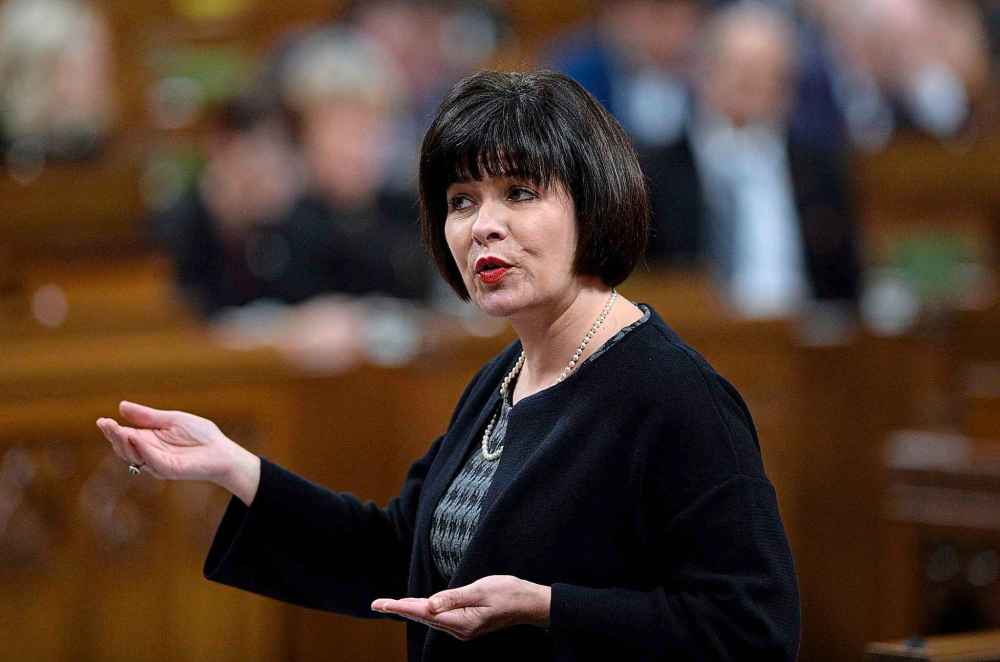
The federal government is working on a central drug observatory to corroborate the data that has already been collected by border guards, police, hospitals and social-service agencies.
“We have never brought that data together in a co-ordinated and comprehensive way,” said Suzy McDonald, who leads Health Canada’s response to opioids and other drugs.
“I believe that if we’d had a drug observatory earlier, we would’ve been able to predict that we had an opioid crisis — and we’d be able to give you better information on what the methamphetamine use looks like today.”
Canada assembling meth for export, official says
OTTAWA — While Winnipeg police have raised the alarm of Mexican-made meth and its components reaching the city, a federal official says Canada is also sending the drug abroad.
OTTAWA — While Winnipeg police have raised the alarm of Mexican-made meth and its components reaching the city, a federal official says Canada is also sending the drug abroad.
“In some cases, we’re seeing Canada being used as a transit country, where methamphetamine is being exported,” Trevor Bhupsingh, the border-strategies director for Public Safety Canada told the House health committee Thursday.
He said organized crime is importing components of the drug, which are “then being assembled here” and sent to countries he didn’t named.
The Free Press asked PSC and the Canada Border Services Agency to clarify whether Winnipeg is the source of this meth, and to which countries it is being sent — neither replied by deadline.
Bill Blair, the minister responsible for organized crime reduction, said he hadn’t heard about Canada exporting meth.
“I don’t know specifically about the information that you reference, but we have seen the movement of various drug and chemicals across our border in both directions, and we’ll work diligently to make sure this is curtailed,” Blair said.
He called meth “a very significant concern for our government.”
RCMP. Supt. Paul Beauchesne, who focuses on organized crime, confirmed reports from Winnipeg police that meth in the city largely comes from Mexico, with additives from India and China.
Meanwhile, Addictions Foundation of Manitoba medical director Ginette Poulin said there has been virtually no evidence of small-scale production in the city.
—Dylan Robertson
Officials from Public Safety Canada said they’re in touch with Statistics Canada about creating a study to understand who uses meth, why they take it, how they get it and how much it costs.
Health Minister Ginette Petitpas Taylor admitted it took a while for Ottawa to start tracking opioid use in 2017, but that they’ve since issued updates every quarter. She envisioned something similar for the meth crisis.
“If we want to effectively deal with the crisis, we have to know the reality of what’s happening. A big part of that is making sure we get the proper data,” she said.
“Some provinces are dealing with (meth) more than others, but we also have to make sure we have a national picture of what’s going on,” she said.

The committee also heard from the Addictions Foundation of Manitoba. Medical director Ginette Poulin said women appear to be disproportionately using meth, and yet there are more care beds in Winnipeg for men than women. She said this may boost the number of child apprehensions by social workers.
AFM board chairman Damon Johnston talked about finding as many as 300 syringes in a park at Higgins Avenue and Main Street every week. He also said downtown Winnipeg is “absolutely not” safe.
“It’s huge. You see it every day — people on the street struggling to survive, some dying. So it’s right in your face. You can’t ignore it,” Johnston said.
He told the committee he’s had no clear indication how the provincial government has used the federal cash allocated for mental-health needs since Manitoba reluctantly accepted the federal health transfer in August 2017.
Meth patients struggle to find mental care: experts
OTTAWA — Manitoba health experts told Parliament that meth users are bounced between medical clinics, instead of getting the help they need.
OTTAWA — Manitoba health experts told Parliament that meth users are bounced between medical clinics, instead of getting the help they need.
Sheri Fandrey testified before the House health committee on behalf of the Canadian Community Epidemiology Network on Drug Use. She said patients can access addictions treatment faster than counselling to address their trauma — despite that often being the underlying issue.
She said the long waits inhibit a “reluctant, transient population” from making progress in detox programs.
Addictions Foundation of Manitoba medical director Ginette Poulin said Manitobans with meth issues are siloed between addiction treatment and other mental-health needs, often in different locations.
“It’s the chicken and the egg; they’re bouncing back and forth and then we’re missing the mark grossly,” she said.
Poulin said the province’s new Rapid Access to Addictions Medicine clinics are a positive step, but far too many patients outside Winnipeg are still being sent to the city. She cited a patient in The Pas being sent south to Winnipeg and back north to Thompson for help.
Meanwhile, Ontario Tory MP Ben Lobb suggested the federal government compel the pharmaceutical industry to put up cash for drug-treatment and mental-health programs, because of allegations it has exacerbated the crisis.
—Dylan Robertson
In an email response, Health Minister Cameron Friesen cited equipping paramedics with Olanzapine and launching rapid-access clinics. “We have consistently demonstrated our ongoing commitment to respond to the rising use of illicit drugs in our communities,” he wrote.
Similarly, the committee heard that federal bureaucrats are in touch with Manitoba over its allotment of the $150-million emergency treatment fund, but it remains unclear how much funding the province will receive, and when. A month ago, it emerged that the province had prepared a submission in May.
Winnipeg Liberal MP Doug Eyolfson, who is a doctor, said he’s wondering what’s happened since then.
“Certainly, our health ministry needs to talk to our provincial counterparts, because we have been insistent that mental health has been chronically underfunded,” he said. Friesen wrote he expect to have details “in the near future.”
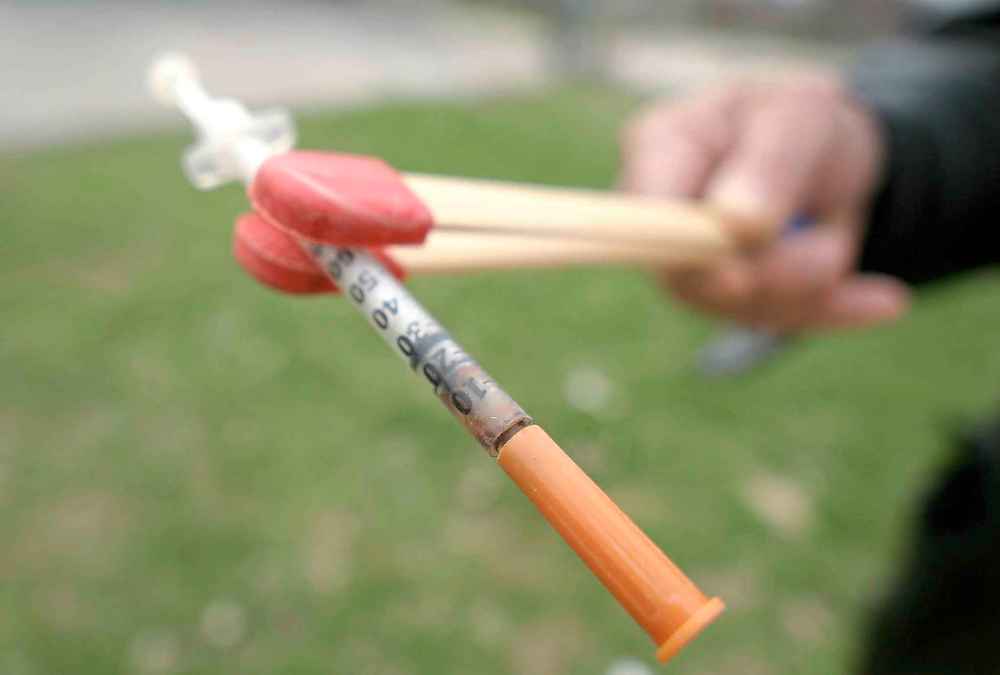
Eyolfson, who asked for the hearings on the meth crisis, expressed dismay over the rapidly worsening situation, saying he’d never encountered someone overdosing on meth while working as an physician at the Health Sciences Centre just three years ago.
Petitpas Taylor said a federal task force will include Eyolfson, and that the Pallister government has been collaborative.
“In the area of Winnipeg I know it’s been brought up to my attention and it’s an issue of great importance to them and great concern. I’m pleased to say that our office is working in close collaboration with that province.”
dylan.robertson@freepress.mb.ca
History
Updated on Thursday, November 29, 2018 5:23 PM CST: Adds full story.


